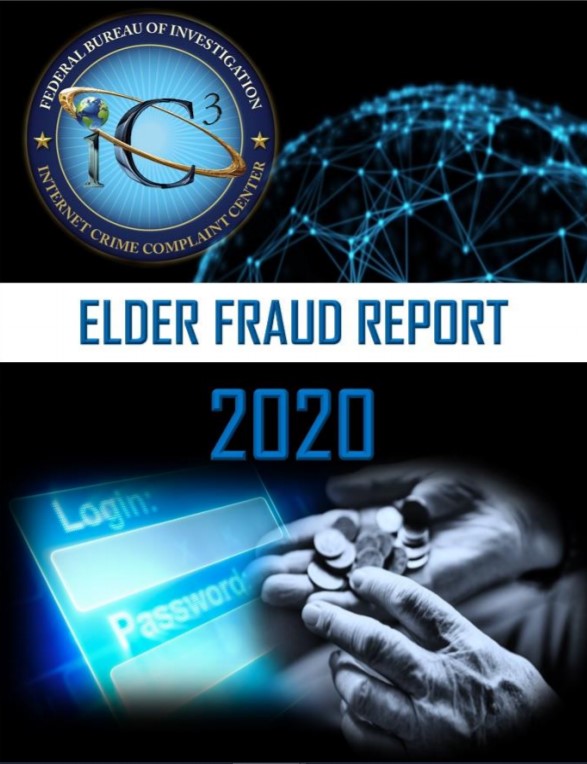
Older adults in the United States were scammed out of approximately $1 billion through fraud schemes in 2020, an increase of $300 million from 2019, according to a new report from the FBI’s Internet Crime Complaint Center, or IC3.
The IC3 Elder Fraud Report 2020 is a companion report to the Attorney General’s 2020 IC3 Elder Fraud Annual Report published by the FBI to educate the public and provide information on the types of fraud targeting older adults.
The IC3 received 791,790 complaints with reported losses exceeding $4.1 billion in 2020, according to the report. Older adult victims accounted for approximately 28% of total fraud losses, with an average loss of $9,175, although 1,921 older adults lost more than $100,000 each.
“Each year, millions of eldelry Americans fall victim to some type of financial fraud or internet scheme, such as romance scams, tech support fraud, and lottery or sweepstake scams,” Calvin Shivers, assistant director of the FBI Criminal Investigative Division, wrote in the forward to the report. “Criminals gain their targets’ trust or use tactics of intimidation and threats to take advantage of their victims. Once successful, scammers are likely to keep a scheme going because of the prospect of significant financial gain.”
The top elder fraud crimes committed against older adults by number of victims include extortion (23,100 victims), non-payment / non-delivery (14,534), tech support (9,429), identity theft (7,581) and phishing / vishing / smishing / pharming (7,353).
Most extortion complaints involved a threatening email telling victims they were infected with COVID-19 — or threatening to infect them with the virus — unless a virtual currency payoff was made. According to the report, older adults suffered more than $18 million in losses through extortion schemes.
The top crimes by financial loss include confidence fraud / romance ($281 million in losses), business email compromise / email account compromise ($169 million), tech support ($116 million), investment ($98 million) and real estate / rental ($50 million).
Confidence fraud / romance scams are designed to “pull on a victim’s heartstrings.” In 2020, the IC3 received reports from 6,817 older adult victims, who also report being pressured into investment opportunities. In 2020, the IC3 received 403 complaints with losses totaling $29 million from confidence fraud / romance scam victims who also reported the use of investments and virtual currencies.
This category also includes grandparent scams, in which criminals impersonate a panicked loved one who claims to be in trouble and needs money.
The top 10 states for elder fraud by number of victims are California (12,534 victims), Florida (9,252), Texas (6,342), New York (6,021), Colorado (4,335), Illinois (4,227), Pennsylvania (3,543), Washington (3,301), Arizona (3,053) and Virginia (2,779).
Ranked by financial loss, the top 10 states for elder fraud are California ($153 million), Florida ($85 million), Texas ($70 million), New York ($55 million), Illinois ($32 million), North Carolina and New Jersey ($28 million), Arizona and Washington ($27 million), and Georgia ($26 million).




